S S Vasan
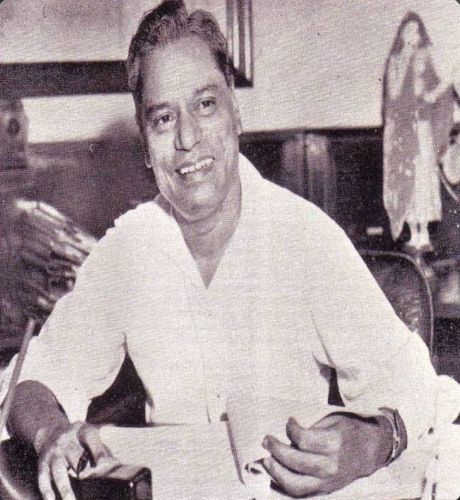
Subscribe to read full article
This section is for paid subscribers only. Our subscription is only $37/- for one full year.
You get unlimited access to all paid section and features on the website with this subscription.
Not ready for a full subscription?
You can access this article for $2 , and have it saved to your account for one year.
- Real Name: Thiruthuraipoondi Subramanya Srinivasan
- Born: 10 March 1903 (Thiruthuraipoondi, Tamil Nadu)
- Died: 26 August 1969
- Primary Cinema: Tamil
- Spouse: Pattamal Vasan
- Children: S. Balasubramanian
Prominent producer, director, writer, media baron, and Gemini Studio founder - S S Vasan produced and directed several films including the epic Chandralekha (1948) and Avvaiyar (1953). Born in 1903, in Thiruthuraipundi, Tamil Nadu, Vasan had initially set up a successful mail order business. He stepped into films when his novel Sathi Leelavathi was made into a film in 1936. Entering film distribution, a couple of years later he founded Gemini Studios. Vasan’s big break came when he entered the Hindi market with Chandralekha, also made in Tamil. This lavish costume drama marked his directorial debut and was one of the most expensive films of its time. Popular Hindi films such as Mr Sampat (1952), Insaniyat (1955), Raj Tilak (1959) and Paigham (1959) followed, as well as family melodramas like Gharana (1961), Grahasti (1963), and Aurat (1967). A showman to the core, he thoroughly believed in the spectacle of cinema. His belief in the mission of cinema: of being a medium of entertain the common man, saw him pull out the stops when it came to endowing his films with high production values, enormous sets, impressive dances, scores of extras, and unusual ‘items’. Vasan was also President of the Film Federation of India for two terms. Nominated to the Rajya Sabha, he was conferred the Padma Bhushan award by the Government of India in 1969.
He was born Thiruthuraipoondi Subramanya Srinivasan Iyer on 10 March, 1903 in Thiruthuraipoondi, Tamil Nadu. After the death of his father at a young age, his mother, a Sanskrit scholar, returned to the place of his birth. Going on to join Pachaiyappa’s College in erstwhile Madras, he however quit studies before completing his graduation. He went on to start a flourishing mail order and advertising business; one of the earliest to be started by an Indian. He put the revenue earned into buying a small printing press. He went on to launch Ananda Vikatan, a popular weekly in Tamil Nadu—decades later, it continues to be printed. Vasan introduced the concept of reading fiction on a weekly basis; he was also instrumental in nurturing writing talents like Kalki who later became a popular screenplay writer.
S S Vasan, as he came to be popularly known, entered films when Sathi Leelavathi, a serialised novel he had penned, was made into a film of the same name in 1936. The film turned out to be the first film of not just Vasan but of others who would go on to become greats of Tamil cinema such as American born director Ellis R Dungan, the hero MK Radha, character actor TS Balaiah, and the great actor-turned-politician M G Ramachandran. Incidentally, another film Pathi Bhakthi released the same year, with a similar storyline of the hero being tempted into a realm of vice. It was later discovered that both films had been inspired by Mrs. Henry Wood’s story Danesbury House.
Within a couple of years, S S Vasan had stepped into the distribution of films of the Madras United Artists Corporation in 1938. His entrepreneurial spirit was in evidence again, when in 1941, he took the plunge into acquiring a film studio. The studio of the Motion Picture Producers Combine had been put on the market after it was struck by a fire in 1940. It was, like most studios in India at the tine, uninsured. When the partners decided to sell the ruined property, Vasan bought the land, put resources into rebuilding, and launched his production company, Gemini Studios. The film production company went on to produce a variety of films both during the war and after, including Mangamma Sapatham (1943), Kannamma En Kadhali (1945), Miss Malini (1947) and Apoorva Sahodarargal (1949).
Vasan’s fame grew exponentially when he entered the Hindi film market with Chandralekha (1948). Also made in Tamil as Chandralekha, this opulently-mounted costume drama was one of the most expensive films of its time. It also marked his directorial debut. The story revolved around two warring brothers, one good (MK Radha) and one evil (Ranjan), who fight over their kingdom as well as the love of the heroine, Chandra (TR Rajakumari). The film included stunning circus sequences which were added midway into the film’s making, exciting sword fights, and a much talked about pre-climactic drum dance that is still memorable. The film was even released in the United States as Chandra along with English subtitles. The bilingual film cost more than Rs.30 lakh in the making with an additional Rs.12 lakh thrown in for publicity. It went on to smash box-office records and earned a gross of Rs.1.55 crore. No other validation was needed of how emphatically Vasan had arrived as a filmmaker.
Vasan’s Gemini Pictures produced films in both Tamil and Hindi through the late 1940s and 50s. His keen marketing insights helped Madras gain a strong foothold in the Indian film industry. As a director, Vasan also produced Hindi versions of his studio productions.
Vasan won praise for his Hindi films Mr Sampat (1952), Insaniyat (1955), Raj Tilak (1958) and Paigham (1959). Insaniyat was a remake of the Telugu hit, Palletoori Pilla (1950), while Raj Tilak and Paigham were remade in Tamil as Vanjikottai Valiban (1958) and Irumbu Thirai (1960), produced and directed by Vasan.
To Vasan also goes credit for pulling off unusual casting coups such as bringing two of the industry’s best dancers and supposedly bitter rivals, Vyjayanthimala and Padmini, for a memorable dance competition in Raj Tilak/ Vanjikottai Valiban. Similarly, he signed on Dilip Kumar and Dev Anand together for Insaniyat, as well as added to the cast the chimpanzee from Hollywood – Zippy at a considerable cost, and who eventually practically stole the show from his human counterparts. An inveterate ‘thrill-seeker’ as a filmmaker, Vasan never shied away from changing his films even in the middle of production, adding a novel item if he thought it could thus be bettered.
Vasan’s Mr Sampat is considered perhaps his best work qualitatively. Based on R K Narayan’s 1949 book Mr Sampat: The Printer of Malgudi, Vasan used it as a tool to successfully mock politicians, ex-princes, journalists, film stars, religious zealots and fake philanthropists. He thus created a satire that was irreverent and amusing, also featuring Motilal as the fast-talking conman and delivering a delightful performance.
His films, post 1960, were mostly family melodramas such as Gharana (1961), Grahasti (1963), Aurat (1967) and Teen Bahuraniyan (1968). His last film, Shatranj (1969), starring Rajendra Kumar and Waheeda Rehman, was an escapist entertainer, more on the lines of his earlier films.
Expanding further, Vasan had set up Gemini Colour Laboratories in 1958, even as he focused on establishing the film trade in a professional manner. He was the President of the Film Federation of India for two terms, and also presided over the South Indian Film Chamber of Commerce. He was also honoured with Padma Bhushan by the Central Government for his contribution to the field of art and culture. He was also nominated to the Rajya Sabha.
S S Vasan passed away on 26 August, 1969. While Gemini Pictures hit a slump in the 1970s, it remained successful as a studio and in the equipment rental business. The Indian Postal Department released a commemorative stamp in his honour.
References
https://www.cinestaan.com/people/s-s-vasan-1882/filmography
https://upperstall.com/profile/luminary/ss-vasan/
https://www.exchange4media.com/marketing-news/postal-dept-releases-stamp-to-honour-media-baron-ss-vasan-13326.html
Image credit: http://www.aanthaireporter.com/wp-content/uploads/2016/08/s-s-vasan-aug-26.jpg
-
Filmography (14)
SortRole
-

Teen Bahuraniyan 1968
-
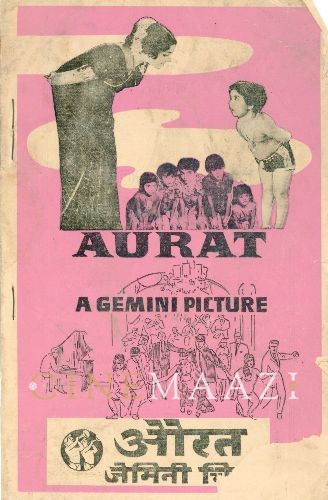
Aurat 1967
-
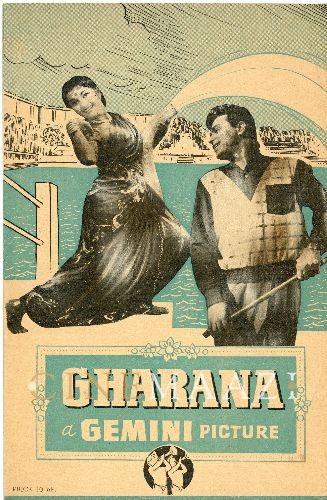
Gharana 1961
-
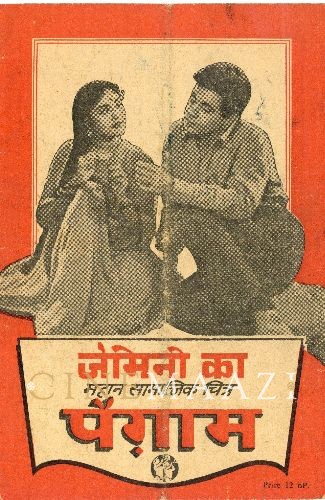
Paigham 1959
-
Vanjikottai Valiban 1958
-
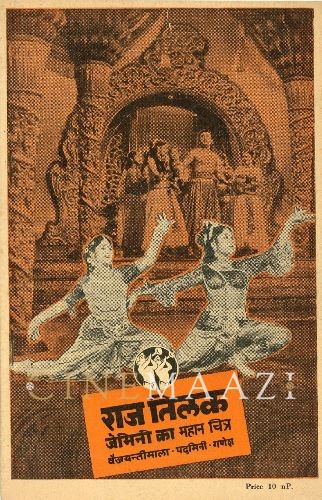
Raj Tilak 1958
-
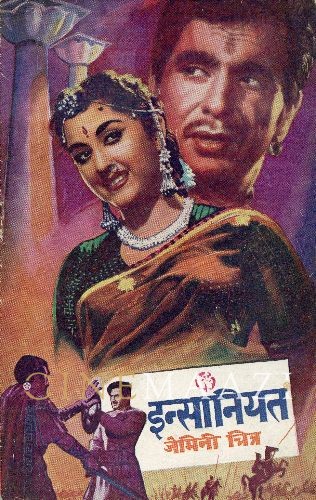
Insaniyat 1955
-
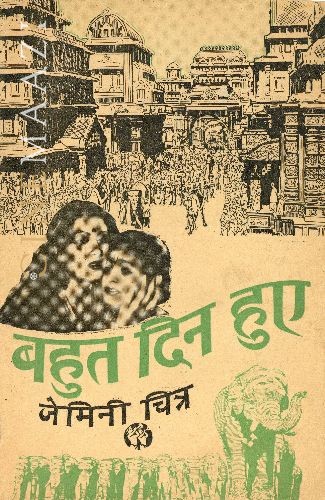
Bahut Din Huwe 1954
-
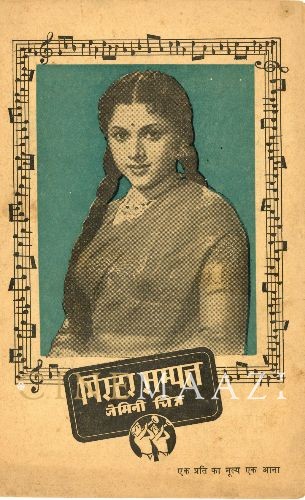
Mr. Sampat 1952
-
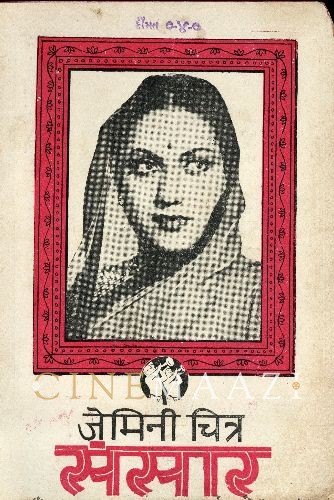
Sansar 1951
-

Mangala 1950
-








.jpg)



